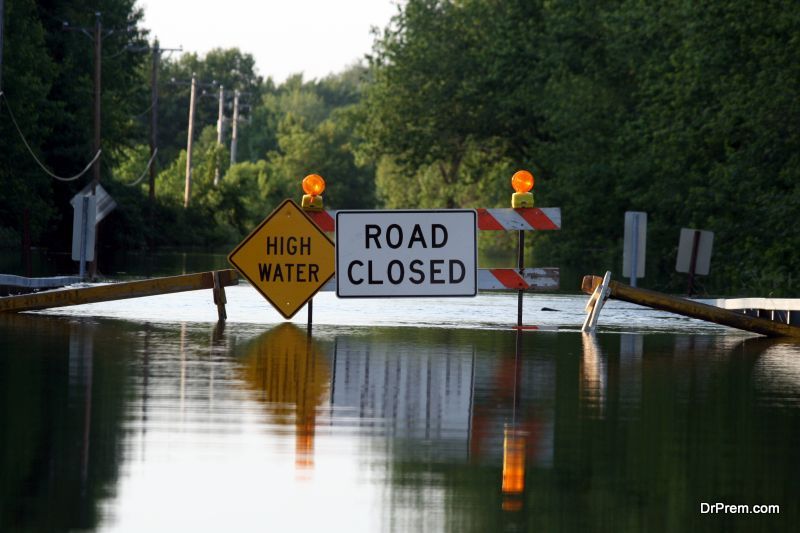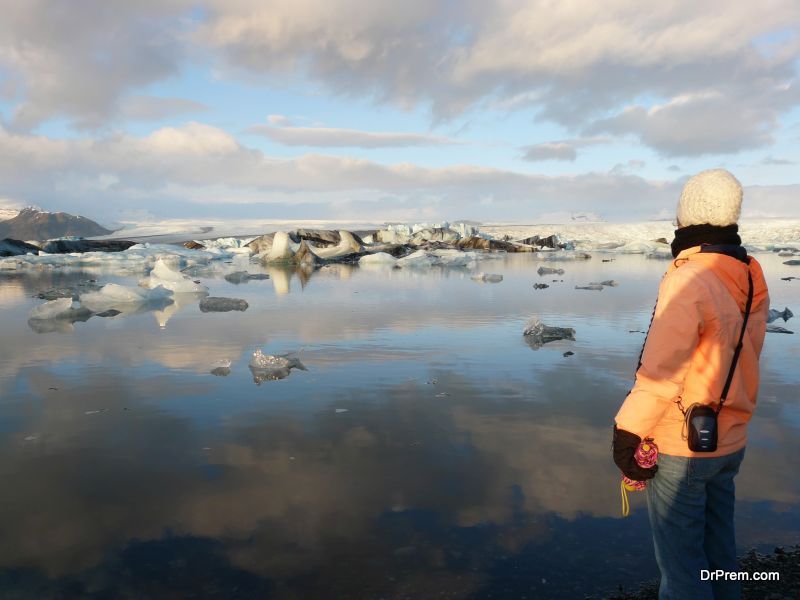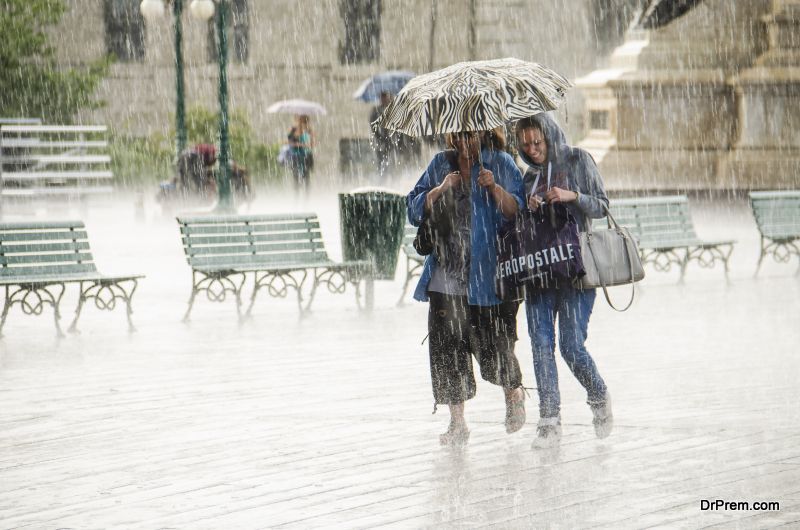We have been reading about drastic weather conditions all around the world. Scientists are attributing this sudden climate change to global warming. There have been instances of heavy rain and thunderstorms, causing floods and havoc in many parts of the world. Rising average temperatures globally has seen more volume of rain during heavy downpours. This is due to the fact that warmer air can contain more moisture. If greenhouse gases continue to be released into the atmosphere, scientists predict that heavy precipitation events can increase in excess of 40%, resulting in heavy floods. Let’s take a detailed look at the link between climate change and floods:
The planet is warmer
The IPCC (Intergovernmental Panel on Climate Change) has found that the planet’s atmosphere is warmer by approximately .75 degrees. This means that the atmosphere can hold 5-6 % more moisture. Though rainfall is influenced by different weather patterns, more moisture means that the volume of rain will be more when it pours. Climate change might also affect other atmospheric calculations such as Jet Streams that control weather conditions, which in turn might be linked to flooding.
Evidence of heavy rainfall incidences is growing
Detecting weather trends which are abnormal is tough, and requires continuous observation over decades. It is hard to find documented evidence of the link between flooding and climate change, as the data records do not cover a long period of time.
Except for Europe, there is evidence of a trend of heavy rainfall everywhere. Another recent study has concluded that emissions did contribute to intense precipitation covering 2/3rds of northern hemisphere, during the years 1950-2000. Discovering such trends are difficult, but may become easier as extreme weather events occur in the future.
The El Nino, which means Christmas Child, is not unprecedented but the phenomenon is repeating itself quite frequently, leading to heat waves and weather change worldwide. For example, the temperature in the coastal areas of Peru is getting higher, and flooding has also been noticed there.
Relating climate change to flooding may be tricky
Usually, scientists avoid attributing specific cases of flooding to climate change, as there is no way of knowing whether those events would have taken place even if global warming had not occurred. Instead, the frequency or severity of these events may be considered to be due to climate change. According to a study of the floods in the UK, emissions increased the risk of floods by approximately 90%, though the study could not pinpoint that the flooding, which took place in Wales and England, was because of emissions. It would require detailed analyses of data to link specific events such as the flooding in UK, to climate change, which would take a lot of time.
Flooding might increase in future
Scientists are predicting that flooding might increase. There are three types of flooding – Surface water: This occurs when heavy rainfall cannot be absorbed by the ground or be drained away.
River flooding: This happens when rivers and streams burst the banks.
Coastal flooding: This happens due to rising sea levels, storm surges and tides.
Sea levels are rising globally due to global warming, therefore coastal areas are expected to see more flooding due to climate change. But scientists are uncertain whether flooding due to rivers and surface water would increase, as there is no model to make correct projections as yet.
Flooding due to humans
Flooding in recent times is not only due to nature, but humans have also contributed in a major way to flooding. Changes in the manner of land use, for example, construction of homes over flood plains, natural surfaces being paved over, are also reasons of flooding. As human population is growing all over the world, land which was meant for farming has been converted to residential complexes. This is why, instances of flooding are more frequent.
Global warming is a reality and if it continues unchecked, climate change will be even more extreme. As warmer air is associated to heavier precipitation, which in turn leads to greater volume of rainfall, we can expect to see more instances of flooding due to climate change. Thus, places where heavy precipitation occurs should plan measures to combat flooding to ensure that there is less damage to lives and property.







